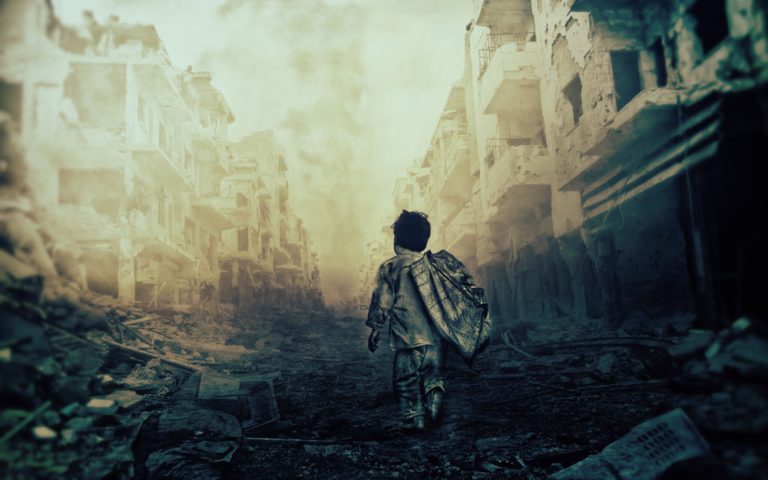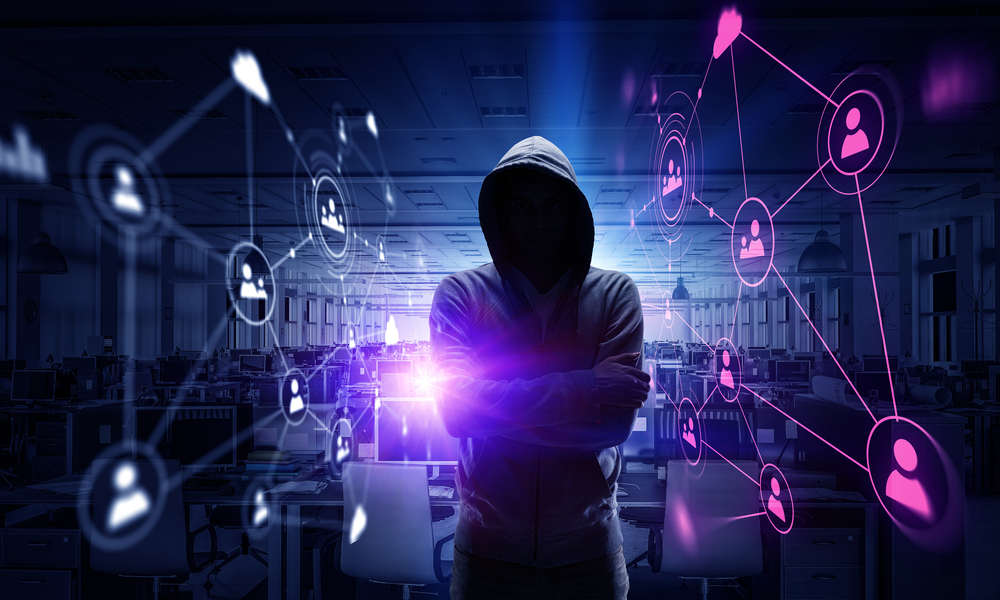Governments and central banking regulatory bodies continue to express concern about crypto being used for criminal purposes and terror. The terror campaigns of these very same governments continue unabated, however. In the wake of the V20 summit it might seem that lawmakers actually care about stopping darknet crime, money laundering, and other abuses facilitated by the anonymity crypto provides. What is really happening is the large-scale degradation of language, coupled with a gross misrepresentation of what actually constitutes the most pressing threat to the world, in finance and elsewhere: the state.
Also read: Ross Ulbricht Letter Questions the Wisdom of Imprisoning Non-Violent Offenders
Defining Terror: A Telling Change
Terrorism is commonly defined as the use of violence, or threats of violence, to achieve political or ideological goals. In recent years however, major players in the cyber information market have been critically altering that simple definition. Altering it by adding one small word: “unlawful.”
Whereas Google previously defined terrorism as “the use of violence and intimidation in the pursuit of political aims,” this has now been changed to: “the unlawful use of violence and intimidation, especially against civilians, in the pursuit of political aims.” The spine-chilling difference is clear and simple: now, no matter what the act—no matter how heinous, violent, or evil—once it is designated by lawmakers as “legal,” it can no longer be called terrorism. The implications of this change are as numerous as they are unsettling. George Orwell wrote in his classic novel 1984:
Don’t you see that the whole aim of Newspeak is to narrow the range of thought?… Has it ever occurred to you, Winston, that by the year 2050, at the very latest, not a single human being will be alive who could understand such a conversation as we are having now?
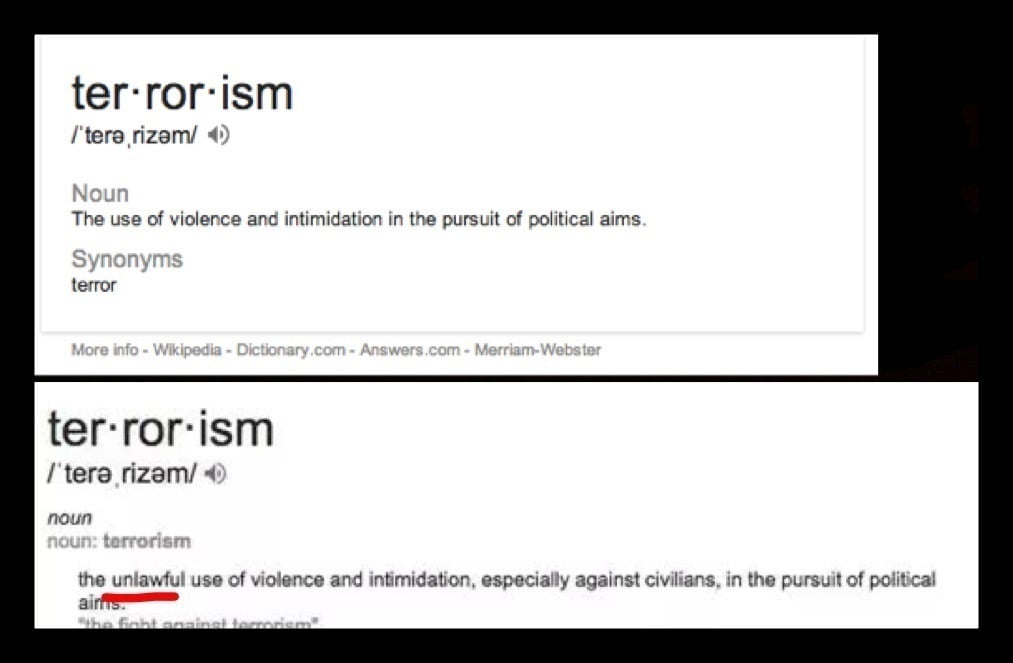
Pop Culture Terror Attacks
In popular culture, terrorism is usually viewed as something mainly non-governmental which radicalized ideological groups or individuals engage in. The media makes sure we know who they are, giving them an almost celebrity status: ISIS, Al-Qaeda, the Bataclan bombers. Ted Kaczynski, Timothy McVeigh. More recently, domestic terrorists. The list, tragically, goes on and on. But there’s another group that’s being mentioned in conjunction with terrorism and technology now: those who use cryptocurrencies on the darknet.
Why this demographic is being talked about is clear. The darknet affords users anonymity. Cryptocurrency markets there range from things as harmless as dropping an anonymous tip to a news organization to assassination markets, contract killing, and child pornography. Illegal weapons trafficking has also been the focus of recent media attention, and has been associated with bitcoin users. Forbes.com reports:
In a 2017 study conducted by RAND Europe, the Darknet was found to be an enabler for the circulation of illegal weapons, in an online trade which researchers estimated to be worth around $80,000 per month.
Praising Blockchain, Restricting Crypto
The V20 summit has just wrapped up in Osaka, Japan, where a new Memorandum of Understanding was signed by VASP (Virtual Asset Service Provider) trade association representatives from six different countries. Regulation of cyber crimes such as money laundering and terrorism (especially as facilitated by cryptographic technology) are at the forefront of global regulatory discussions more frequently these days.
Anson Zeall, a co-organizer of the summit, stated: “Further, this new agenda aligns with and strengthens our original mission to utilize the power of blockchain technology to deliver financial inclusion across the world.”
Central banks and governments are simultaneously rolling out their own blockchain payments systems, databases, and tokens in what is a puzzling move for some. J.P Morgan Chase, whose CEO Jamie Dimon has famously called bitcoin a “scam,” is now leading his company in the creation of its own JPM coin.
While it might seem these groups are embracing the economic autonomy and privacy of cryptocurrencies, while trying to stifle the tech simultaneously, nothing could be further from the truth. A blockchain is only a database, and central banks, large government-embedded corporations, and state intelligence agencies know this.
As James Corbett of The Corbett Report affirms:
But talking about the blockchain is like talking about the printing press. Yes, it’s revolutionary. Yes, it will change the course of history. But what, specifically, does it print? Well, whatever you want it to, of course. A papal bull or the Ninety-five Theses, the 9/11 Commission Report or The Road to 9/11, a GMO cookbook or The Anarchist Cookbook, colorful pieces of toilet paper or Federal Reserve notes (but I repeat myself).
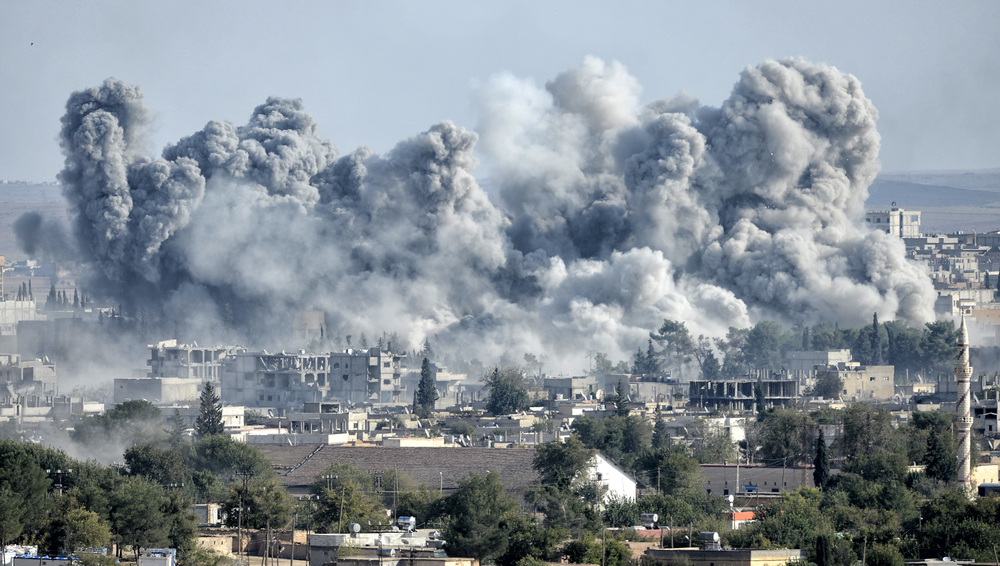
Who Are the Terrorists?
It is not hyperbolic to claim that governments are indeed terrorist organizations, the U.S. being arguably the largest of these currently. If the enemy to be eradicated is darknet drug sales, illegal arms trafficking, and sexual abuse, governments themselves must be called into question with even greater skepticism and resolve. In comparison to the ongoing, bloody, and long-enduring mass-scale abuse perpetrated by these same entities, the dangers of the darknet seem almost irrelevant.

Contra: Dealing Drugs, Hiding Money and Killing
There are many places to start when dealing with the U.S. government’s sordid history of political killings, human rights abuses, and trafficking what they themselves deem “illegal substances,” but the Nicaraguan Contra War seems as sufficient as any. A December 1988 report prepared at the behest of then-Senator John Kerry (D-Mass.) by the Committee on Foreign Relations states:
“The Subcommittee found that the Contra drug links included … Payments to drug traffickers by the U.S. State Department of funds authorized by the Congress for humanitarian assistance to the Contras, in some cases after the traffickers had been indicted by federal law enforcement agencies on drug charges, in others while traffickers were under active investigation by these same agencies.”
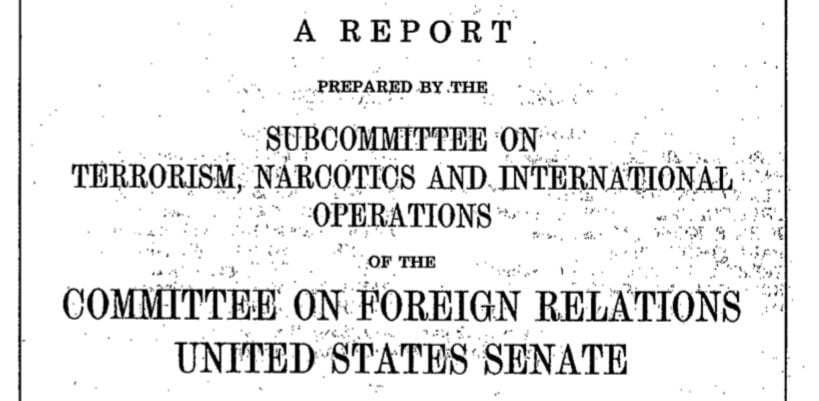
The state was not simply turning a blind eye to these reported findings. The U.S. government was at the same time actively engaged in its ostensible “war on drugs” domestically, which would put over 400,000 individuals in prison in 1988, and cost taxpayers roughy $2.5B.
Drug trafficking was not the only issue here, however. Tied up in the Contra War scandal were reports of kidnappings, executions, rapes and other atrocities which the Reagan administration and relevant government agencies would ultimately turn a blind eye to, downplay, or deny (though many would end up convicted and serving mostly light sentences for their participation).
Where illicit money is concerned, United States Marine Corps Lt. Col. Oliver North and U.S. intelligence agencies became adept at laundering funds supporting Contra fighters. This was done via bogus business names and secret Swiss bank accounts. Still, the Contra terror programs, as horrific as they were, are just the tip of the iceberg. State-sponsored terror worldwide has been a perpetual and consistently upheld reality.

Massacre, Kidnap and Euphemism
An estimated 262 million civilians were murdered at the hands of their governments in the 20th century. This number is much higher now, with the incessant bombings and endless warfare that have been unleashed on the Middle East in Iraq, Afghanistan, Pakistan, Yemen, Syria, and elsewhere. The University of Hawaii maintains a webpage hosting a breakdown of this data on democide, as compiled by late political scientist R.J. Rummel, as well as supplementary data, writings, and materials.
Returning to the sanitization of language thread, it bears pointing out that euphemism is a tool used by terrorists and terrorist organizations. “We are not blowing up a building full of innocent people, we are doing the holy work of Allah.” “We are not mercilessly killing Jews, we are cleansing and rebuilding the nation.” “We are not stealing from you, taxes are the price you pay to live in a civilized society.” “We are not letting poor black communities die of preventable syphilis, we are observing their “bad blood” and how it affects them for the sake of science.”
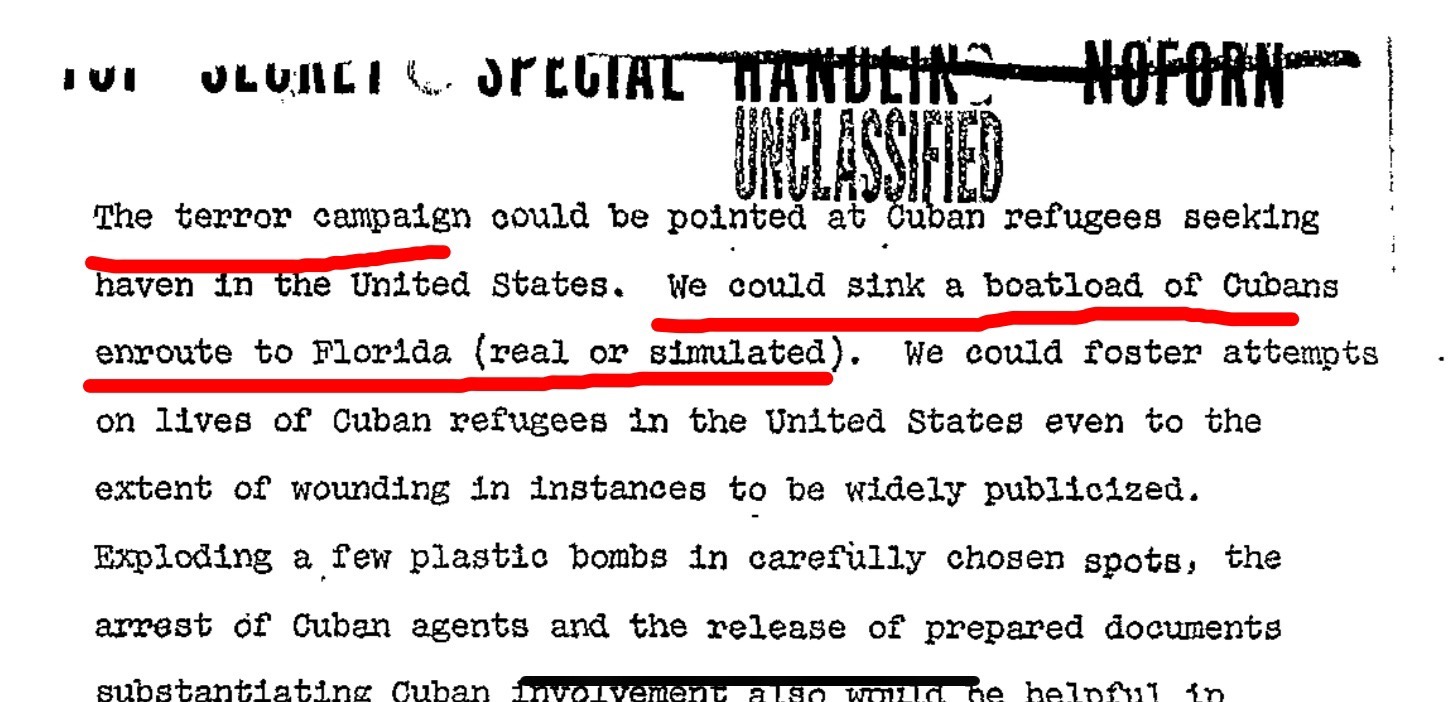
“Those are not dead kids, those are collateral damage.” “Those are not sick, malnourished children at Border Patrol detention centers. Those are illegals.” “These are not bombings of innocent men, women, and children, but are selective, precision predator drone strikes.” “That is not a declassified, Joint Chiefs of Staff violent terrorist plot, which suggests fake attacks on our own ships and killing innocent people to foment conflict, that’s Operation Northwoods, a covert operation.”
“We are not kidnapping you and destroying your family for a plant, this is a war on drugs.” “We are not torturing you. This is a war on terror.” “We are not claiming ownership of your digital assets. These are just common sense regulations.”
How to Fight Terror Without Becoming a Terrorist
The Dark Web is practical. The anonymity and security provided by the encrypted internet means the Dark Web is a haven for criminals, law enforcement agencies, freedom fighters, journalists, neo-capitalists, and curiosity seekers. The Dark Web is unlikely to vanish any time soon.
– Dan Patterson, Techrepublic.
Freedom is no guarantee of safety. Reality is open and non-coercive, loaded with peril and opportunity due to the diverse and varying natures of the individual moral agents acting therein—and thereupon. In other words, people are good and bad. Tools, technologies, and natural phenomena can be used and exploited for both ethical and unethical reasons. The darknet and crypto can be used to finance terrorism, or to combat it, and for everything in between.
Of course regulation has its place, but it only works effectively and ethically (for the minimization or violent conflict) in the hands of legitimate property owners. This is easily exemplified. It’s everyone’s natural right to demand that visitors to their house don’t smoke PCP, punch holes in the walls, shit on the carpet, and trade assault weapons while gambling in the living room naked. It would be another story, however, to visit someone else’s home (who enjoyed doing all those things) and demand they stop.

If someone likes their PCP, hole-punching, assault weapons trade fest, go ahead. Folks might not trust them very much, and might choose to not live in community or do business with them, but they’ve no right to attack. As long as these crazy people are not violating others, it’s all fair game. How much more of an infringement is it then to punish people simply for using a currency online, in mere anticipation that they might commit a crime?
Next Stop, Thought Crime
The fact that market actors are now being forcefully regulated, coerced and restricted by governments simply for using currencies like bitcoin—regardless of whether or not they have actually violated anyone—is telling. It’s reminiscent of the “precrime” theme explored in “Minority Report” or the “thought crime” of George Orwell’s seminal dystopian novel “1984.”
This isn’t about safety, but complete control. Libertarian proponents of free markets and private, autonomous crypto exchange have their work cut out for them. Arguing for free trade, a concept that the other side has intentionally classified as “terrorism”—and which potentially allows some bad actors to engage in horrific abuses of human beings, is no glamorous or easy task. And yet, the current situation is one of unfree markets, breathtakingly dense and crippling legislation, and the problems of massacre, trafficking, and finance persisting and growing.

Decentralized Regulation, Like Decentralized Markets, Is Efficient
Where universal abuses and violations like human trafficking and child pornography are concerned, these should be recognized, of course, as the universally unacceptable, reprehensible, and evil practices they are. Violations of the inalienable human right and objectively demonstrable reality of individual self-ownership cannot be tolerated in any healthy society, whose goal is to flourish and uphold the rights of the smallest minority, the individual.
The problem is that centralized regulation has been largely powerless to stop such violent and exploitative behavior from happening. That’s what’s really troubling here. More unsettling is the strong argument that can be made that these governments and regulatory bodies have systematically encouraged, promoted, and engaged in human trafficking and child sexual abuse, not to mention unprecedented mass slaughter of innocent human life, on an unimaginable scale.

The huge BBC joint media and government coverup for pedophiles like Jimmy Savile is telling. Preying on victims as young as two years old at the BBC’s broadcasting studios and several hospitals (including children’s hospitals), U.K. top government officials and police turned the other way as Savile took advantage of around 500 victims. Police and politicians would later be implicated in this abomination as well.
What better cover to commit evil than labeling oneself the authority on stopping evil. A better means of regulation would be decentralized networks, property-based, node-like systems, so as to not create the massive power vacuums that engender abusive states. Seats of unchecked power for bad actors to occupy will always become occupied. Instead of a workable property norm universal to each individual, we have “divine right to rule” mythologies still alive and well. This in an era when the technology available could eradicate such nonsense.

Who Is the Dread Pirate Roberts?
Patrick Smith, of Voluntaryist media outlet Disenthrall, recently posted a video reading of Silk Road founder Ross Ulbricht’s latest message from prison. The letter, entitled “Who Deserves This?” is heartbreaking. Ulbricht is a young man being forced to live in a cage until he dies. All for providing a service on the darknet others wished to use. No killing. No bombs. No exploitation. Just a service. The terrorist organization called the U.S. federal government did not like that, and in typical terrorist fashion, used violence to achieve their political aims of silencing him. Except, was it really terrorism to throw an innocent man into a cage for life? No. It couldn’t have been. Just check the definition. It was all done under due process of law.
What do you think about recent government regulation of cryptocurrencies? Let us know in the comments section below.
OP-ed disclaimer: This is an Op-ed article. The opinions expressed in this article are the author’s own. Bitcoin.com is not responsible for or liable for any content, accuracy or quality within the Op-ed article. Readers should do their own due diligence before taking any actions related to the content. Bitcoin.com is not responsible, directly or indirectly, for any damage or loss caused or alleged to be caused by or in connection with the use of or reliance on any information in this Op-ed article.
Images courtesy of Shutterstock, Fair Use
Did you know you can verify any unconfirmed Bitcoin transaction with our Bitcoin Block Explorer tool? Simply complete a Bitcoin address search to view it on the blockchain. Plus, visit our Bitcoin Charts to see what’s happening in the industry.
The post Flowery V20 Talk and Government Terror: Why Darknet Crime Is the Least of Our Worries appeared first on Bitcoin News.

